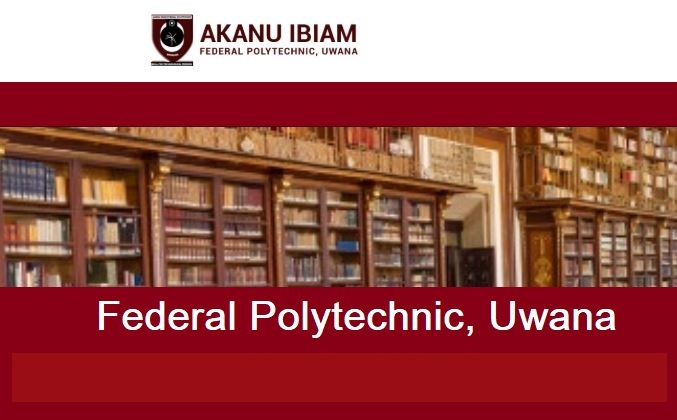
LECTURERS in the nation’s public universities may face bleak Christmas and New Year celebrations, as they did not receive their salaries in the last five months.
The teachers only last Tuesday ended their 169-day strike.
They embarked on the strike on July 1 to demand the implementation of an agreement their umbrella body, the Academic Staff Union of Universities, reached with the Federal Government in 2009.
The ASUU President, Dr. Nasir Fagge, who announced the suspension of the strike last Tuesday, said the union had accepted the resolutions it signed with the government on December 11.
The resolutions include immediate commencement of the revitalisation processes as contained in a letter with reference number FME/PS/398/C.1/Vol i.1/110, dated December 12, 2013, entitled, “Opening of Dedicated Account for Revitalisation of Nigerian Universities.”
But barely one week after the strike ended and 24 hours to Christmas, findings by our correspondents showed that the teachers had yet to collect their salaries.
A lecturer at the Obafemi Awolowo University, Ile-Ife, Osun State, who spoke on the condition of anonymity, noted that they did not receive their August, September, October, November and December salaries.
He expressed reservations about the Federal Government’s commitment to the recent peace deal between the union and government.
The ASUU National Treasurer, Dr. Ademola Aremu, confirmed that the lecturers had yet to receive their salaries.
He said, “We have yet to be paid, even with Christmas coming. This is not our agreement with the government before the strike was called off.”
Also, the University of Ibadan ASUU Chairman, Dr. Segun Ajiboye, confirmed the development.
He said, “It is true that our members have yet to be paid. We are actually heading for a bleak Christmas.”
Fagge, who also confirmed that the lecturers had yet to be paid, said, “People have not been paid salary up till today. We will wait and see.”
He, however, promised to speak further on the issue after Christmas festivities.
Another lecturer at the Lagos State University, who spoke to one of our correspondents, said there was no indication that their families would celebrate the Christmas.
He said, “Until now (Monday night), there is no indication that we shall be paid. There is no evidence that anything will happen before Christmas. One would have thought that preparation and payment of our salaries would be ready before now.
“I, however, suspect that our vice-chancellor is behind this delay. I wonder why he is waiting for further directive before paying us.”
The University of Abuja ASUU Chairman, Dr. Clement Chup, said, “We have yet to be paid. I have not seen any alert.”
Meanwhile, some lecturers at the University of Nigeria and Enugu State University of Technology have also said the festive period would be bleak for them.
They, however, remained optimistic that they would brace the odds and survive the season.
“We would certainly survive. God is in control,” said Dr. Nnanyelugo Okoro of the Department of Mass Communication, UNN.
The ESUT ASUU Chairman, Prof. Gab Agu, expressed disappointment with the system.
He said, “We weren’t even expecting anything much from the Federal Government over the strike, but at least they should have paid us our salaries.
“A labourer is entitled to his wages, but since we have been denied of our wages, what then do we do? We would surely survive this period because our God is in charge.”
But the Deputy Director (Information) of the National Universities Commission, Ibrahim Yankassai, assured that the lecturers would be paid their money in full with December salary.
Also, the Special Assistant (Media) to the Minister of Education, Simeon Nwakaudu, promised that the Federal Government would respect every aspect of the agreement reached with the union, including the non-victimisation clause.
A source privy to the agreement had, last Tuesday, said, “The Federal Government has agreed to pay the salary arrears. It is part of the understanding we reached.”
He added that the government also reached an understanding with the union to pay the lecturers “salaries as a precondition to suspending the strike.”
When asked by one of our correspondents if the government had accepted to pay the salary arrears of the lecturers, the Supervising Minister of Education, Nyesom Wike, replied, “What is your problem? Has ASUU told you they have a problem with that?
“That they have called off the strike is the most important thing. For the other ones, leave the details for us. Any agreement we reached with ASUU must be honoured.”
The just-ended strike came on the heels of the intervention of President Goodluck Jonathan five months and 16 days after the industrial action began.
Following a marathon meeting with the President on November 4, the government agreed to inject N1.3tn into public universities between 2013 and 2018.
Government also promised to inject N220bn yearly into public universities beginning from 2014. However, for the remaining part of this year (2013), it agreed to domicile N200bn in a special account at the Central Bank of Nigeria.
The government, which promised to domicile the N1.3tn at the apex bank to show its commitment to the agreement, also promised to release the money on a quarterly basis to the universities to cater for the funding of the sector.
The two parties also agreed that the National Universities Commission and the Trade Union Congress would be the joint guarantors of the agreement, while the Minister of Education would be the implementing officer.
ASUU’s demands also included:
•Provision of N1.3tn for the revitalisation of the university system from 2013 to 2018;
•Dedication of revitalisation account at the CBN by the government. The funds shall be paid into the account on a quarterly basis from which the universities will draw;
•Constitution of a central monitoring committee to monitor the implementation of the revitalisation of the universities;
•Proper monitoring and verification of the N30bn already released by the government.
•Engaging the services of universities in special consultancy series such as environmental impact assessment, geological/solid minerals survey, biotechnology, among others to boost the Internally Generated Revenue base of the universities.
The signing of the deal finally took place penultimate Wednesday in Abuja with the leadership of the organised labour in attendance as witness.B



